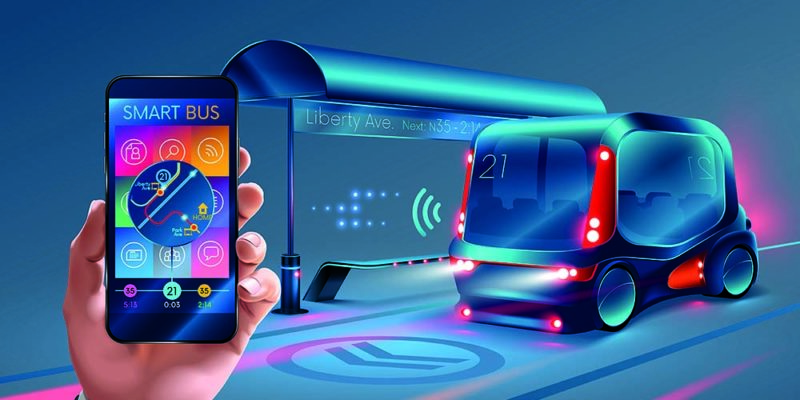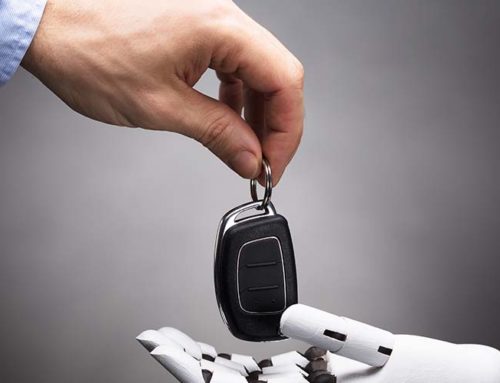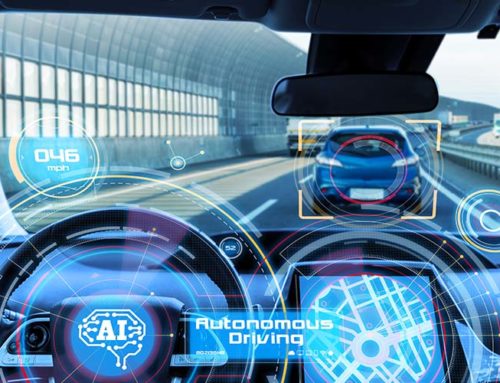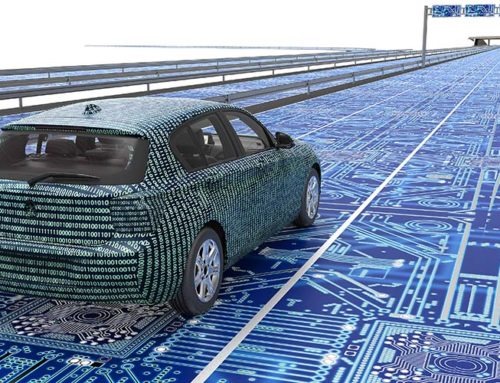Recognized as a creative city of design by UNESCO, Dubai is well-known for its grand projects. From its audaciously high buildings to its distinctively shaped man-made islands, Dubai is a city that fearlessly embraces the future.
As a model for futuristic smart cities, Dubai has become a regional and global hub for testing and research and development of innovative tech. This digital disruption is best seen in Dubai’s vision for smart mobility. This includes initiatives like the upcoming Dubai SD Challenge (or Dubai World Challenge for Self-Driving Transport) and smart transportation goals.
Unprecedented changes are occurring in transportation. From autonomous cars to the re-imagining of physical infrastructure and experiential vehicle technology, an end-to-end transport revolution is transforming how we move and what we move.
Dubai’s vision for the future of transport
One of the key pillars of achieving a more sustainable and knowledge-based economy in Dubai has been the Dubai Autonomous Transportation Strategy.
Launched by His Highness Sheikh Mohammed bin Rashid Al Maktoum, Vice President and Prime Minister of the UAE and Ruler of Dubai, the goal of the Dubai Autonomous Transportation Strategy is to “transform 25 per cent of the total transportation in Dubai to autonomous mode by 2030.”
This evolution in transportation technology is expected to result in improved productivity, cut transportation costs, reduce carbon emissions, diminish traffic accidents, and generate significant annual economic returns.
But what exactly are these disruptions that are shaping the commute of the future? Below we highlight five major shifts in transportation that are set to advance Dubai’s urban mobility landscape into the future.
1. Driverless cars
Dubai’s autonomous transportation strategy comes with several facets.
The first is self-driving cars. While automation, to some degree, already exists in vehicles today, fully autonomous vehicles are several years away. According to some experts, driverless cars are expected to arrive on public roads by 2021.
This mass rollout of driverless cars will reinforce a cleaner and more efficient way of travel in Dubai. However, private self-driving vehicles are just the start of autonomous modes of transport in Dubai.
2. Autonomous public transport
At the beginning of the year, Dubai’s transport authority began testing autonomous pods that travel short distances on dedicated lanes. Currently, these autonomous pods can only run along pre-programmed routes.
In the future, Dubai hopes to enable these pods to become accessible to residents beyond dedicated lanes and pre-programmed routes.
Other forms of smart transportation that will contribute to the Autonomous Transportation Strategy are the proposed 700 mph “hyperloop” and the Autonomous Air Taxi (AAT) service.
A futuristic mode of transport using vacuum-sealed tubes, the Hyperloop will significantly cut down travel time between emirates. With this technology, residents can travel between Abu Dhabi and Dubai in just 12 minutes.
This inter-emirate travel is expected to commence at the production level by 2021.
AAT is another exciting project set to transform Dubai’s urban mobility landscape. Recently taking to the skies, AAT is the world’s first self-flying taxi service. While it is still in the testing and development phase, Dubai aims to have this autonomous drone taxi service up and running within five years.
Artificial intelligence and machine learning
Autonomous vehicle technology is nothing without the incorporation of artificial intelligence (AI) and machine learning applications. This disruptive technology will enable autonomous vehicles to navigate complex driving environments.
By using a deep reinforcement learning system, driverless cars and other autonomous modes of transportation can accomplish dynamic driving tasks like a human. Through data given or learned from previous experiences, autonomous vehicles will have the ability to adapt quickly to new environments and driving conditions.
Machine learning algorithms will also enable on-demand route optimization. This will have a significant impact not only on how people commute from place to place, but also on how logistic companies and emergency medical services are deployed.
On-demand route optimization will save logistics companies time and money, as routes will be optimized for speed and efficiency. This results in better managed operational costs.
For emergency services, route optimization will correlate with response protocols, improving the quality of public safety services. Emergency responders can expedite medical care more efficiently, providing greater service to those in need.
Through the use of AI, autonomous vehicle sensors, and vehicle-to-vehicle communication networks, other driverless cars will have better situation awareness. This will enable neighboring cars to effectively anticipate emergency vehicles and yield the right-of-way.
In-car entertainment
The AI and machine learning algorithms that help autonomous vehicles navigate the roads of tomorrow will also be largely responsible for a vehicle’s infotainment systems. As AI will be responsible for driving autonomous vehicles, a new kind of market will emerge: the passenger economy.
In a world of autonomous vehicles, creating an engaging passenger experience is essential. As people become uncoupled from the steering wheel, demand for a more personalized in-vehicle will rise.
In self-driving cars, these in-vehicle infotainment systems will be capable of a vast array of functionalities. Examples of future on-the-go in-vehicle experiences include:
- Mobile beauty salons
- On-the-go dining
- Mini medical clinics
- Mobile motels
- Local delivery pods
- Drive-away media and entertainment
These future infotainment opportunities will work with AI software to become highly intuitive and customizable. The ability to offer sophisticated capabilities will make these infotainment systems act as a virtual personal assistant.
What’s more, these infotainment systems won’t be relegated to a small screen on the dashboard. As humans no longer have to interact with the road, infotainment systems can encapsulate the whole vehicle. Multiple displays within the vehicle can include the windshield and side windows.
Digital infrastructure
Capturing the benefits of this disruptive technology requires sound infrastructure plans.
In dense urban environments like Dubai, capital programmes will be invested in developing a smart city road network and infrastructure grid. Already, improvements are being made to the emirate’s existing traffic system.
The new AED 590 million smart traffic system announced by Dubai RTA is expected to ensure safer roads. Better traffic monitoring will enable the city to reduce congestion build-up and cut the time for detecting accidents.
Through smart apps and Variable Messaging Signs, drivers will be provided real-time traffic information which will allow drivers to make informed driving decisions.
Dubai RTA is expected to continue evolving this smart traffic system. A futuristic traffic management system that will work in conjunction with autonomous vehicles will include traffic monitoring and data capturing systems.
Updates to the infrastructure grid to include fiber optics and power lines will allow Dubai to reduce grid loads and better integrate mobility systems into its road network.
To ensure that Dubai’s road network can integrate future autonomous modes of transport, Dubai has built a new AED 330 million command and control center known as The Enterprise Command and Control Center (EC3).
The EC3 will serve as Dubai’s transport nerve center. It is one of the most modern control centers in the world, able to manage future modes of mobility and tackle various transportation challenges such as hosting Expo 2020.
Planning for the future, today
Shaping the future of travel requires strategic planning as well as world-class education and research facilities. Becoming the smartest, best-connected, and most accessible city means being a leader in urban mobility.
Initiatives like the SD Challenge is changing transport culture and leadership to support innovation. The future of autonomous transport has implications across numerous industries and markets.
Understanding the disruptive trends and its impact on broader societal shifts will be a key factor in how Dubai paves the way for other smart cities to adopt a more autonomous transport strategy.
Congress
A global 2-day conference that will raise public awareness of modern and future transport by identifying the impact of technology on investments and transport strategies.
Exhibition
A cutting-edge exhibition showcasing the future of self-driving vehicles. The Dubai World Congress for Self-Driving Transport Exhibition is the essential place to attain key decision makers’ attention, and to meet your target audience.
Challenge
The first-of-its kind, multi-year international challenge designed for industry leaders, start-ups, and academia tackling the transport challenges faced by global cities.







